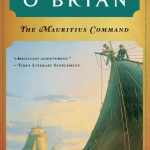My fellow Patheos blogger Pascal-Emmanuel Gobry wrote an excellent article last week entitled “How our botched understanding of ‘science’ ruins everything.” I liked it very much, and generally agree with what he says; but I thought a little more could be said about Aristotle’s role in the whole thing. PEG says,
A little history: The first proto-scientist was the Greek intellectual Aristotle, who wrote many manuals of his observations of the natural world and who also was the first person to propose a systematic epistemology, i.e., a philosophy of what science is and how people should go about it. Aristotle’s definition of science became famous in its Latin translation as: rerum cognoscere causas, or, “knowledge of the ultimate causes of things.” For this, you can often see in manuals Aristotle described as the Father of Science.
The problem with that is that it’s absolutely not true. Aristotelian “science” was a major setback for all of human civilization. For Aristotle, science started with empirical investigation and then used theoretical speculation to decide what things are caused by.
What we now know as the “scientific revolution” was a repudiation of Aristotle: science, not as knowledge of the ultimate causes of things but as the production of reliable predictive rules through controlled experimentation.
Galileo disproved Aristotle’s “demonstration” that heavier objects should fall faster than light ones by creating a subtle controlled experiment (contrary to legend, he did not simply drop two objects from the Tower of Pisa). What was so important about this Galileo Moment was not that Galileo was right and Aristotle wrong; what was so important was how Galileo proved Aristotle wrong: through experiment.
(My emphasis.)
Now, this strikes me as a little harsh. Let me give some background, and explain why I say that.
 Aristotle was a philosopher; and as such he pursued “science”, by which he meant “knowledge”, by the means available to him. In his day you had gentlemen who owned property, and artisans who produced furniture and other artifacts, and they were two separate groups; gentlemen didn’t work with their hands. (Archimedes, who designed and built quite a few things quite some time later, was a brilliant outlier in that regard.)
Aristotle was a philosopher; and as such he pursued “science”, by which he meant “knowledge”, by the means available to him. In his day you had gentlemen who owned property, and artisans who produced furniture and other artifacts, and they were two separate groups; gentlemen didn’t work with their hands. (Archimedes, who designed and built quite a few things quite some time later, was a brilliant outlier in that regard.)
Like most intellectuals, he pursued the intellectual problems of his day; and one of them was the problem of “change”: how is change possible. There were some on one side who said, “All change must be illusion. True change would involve something coming from nothing, and that’s not possible.” And then there were others who said, “There is only change. Stability is an illusion. You can’t step into the same river twice.” And they both had arguments to support their positions.
And Aristotle looked around him, at the world of daily experience, and said, “I see a lot of things changing. Change is clearly possible. But I also see things continuing over time. Clearly both change and stability are possible.” And he sat down to work out how that could be. He started with what he saw around him; and then (as PEG notes) he tried to reason from that to the ultimate causes of what he saw around him. He wanted to understand completely.
This pursuit of ultimate causes is part of what we now call “philosophy”; and as anyone familiar with the intellectual history of the last two-thousand years can tell you it’s very, very difficult: as witness the commonplace observation that there’s no proposition so weird and so obviously wrong that some philosopher hasn’t affirmed it. Some these days will even announce proudly that ultimate truth is impossible, that the self is an illusion, that all our actions are the deterministic result of physical processes…and then they’ll try to argue logically that this is case, and not see how ludicrous that is.
But I digress.
Here are the essential points:
- Aristotle wasn’t so much trying to figure out the specific ways that physical things behave, as the ultimate causes behind those things, to correct certain popular philosophical views of his day.
- He had little interest in what we would call technology.
- Philosophy was just getting started; in his day it was unclear just how difficult the pursuit of the knowledge of ultimate causes would prove to be.
As PEG says, modern science began with Roger Bacon. Bacon wrote the New Organon, consciously in opposition to the Organon of Aristotle; and Baconian science focussed on knowledge of proximate rather than ultimate causes with an eye toward control and mastery of nature. To that end, he suggested, let’s not merely glance at the world around us; let’s step up our game, and put reality through its paces. Let’s understand how everything works, so that we can manipulate it.
It would be hard to overestimate the effects of this change in focus. Because of Bacon and his followers, everything is different. (Bacon—is there anything he can’t do?)
But let’s go back to PEG’s statement, that I highlighted in the passage above: “Aristotelian ‘science’ was a major setback for all of human civilization.” I claim that this is a gross exaggeration. To claim that, you have to be able to claim that things would have gone much differently had he not written what he wrote.
However you look at it, Aristotle came first; and he asked the questions he was interested in, and found answers that were good enough for the time being. Some of his conclusions were incorrect, but then he was a pioneer; and in many ways he saw more clearly than many who have come since.
Aristotle was largely forgotten in Europe from at least the time of Boethius (6th century) until his rediscovery by St. Thomas Aquinas and others in the 12th and 13th centuries, when he was quite controversial. Aquinas and most of his counterparts were more interested in Aristotle’s metaphysics and epistemology than they were in his physics; they were, after all, theologians first and philosophers second.
Over time, Aristotle became embedded in the Western intellectual tradition; until finally, there were some who began to treat him almost as holy writ, not to be questioned. And that was a problem, and I’ll not deny it; and it’s possible that some of the troubles Roger Bacon had were due to Europe’s embrace of Aristotle. It’s certainly true that some of the problems Galileo had centuries later were due to this; but fewer than you might think.
But to blame Aristotle for this is simply to blame him for asking the questions he was interested in rather than the questions we are interested in, and for using the methods appropriate to those questions rather than the methods appropriate to our questions. I’ll have more to say about the methods next week.









